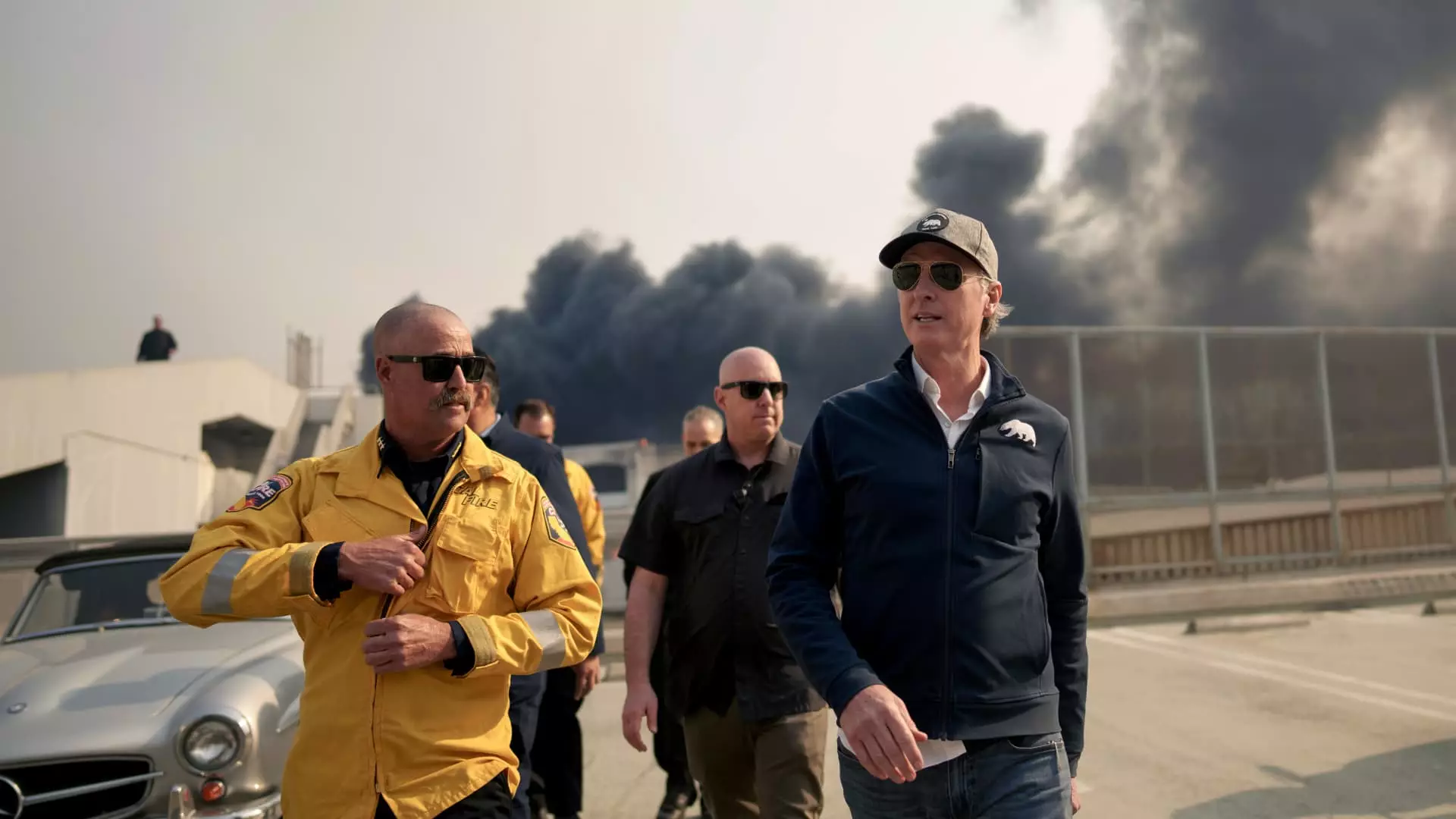The recent catastrophic wildfires in California have reignited tensions between state officials and political leaders, particularly President-elect Donald Trump and Governor Gavin Newsom. These tensions reflect a broader narrative of how political rhetoric can influence and complicate disaster response efforts. In a recent interview, Governor Newsom leveled criticism at Trump’s remarks regarding the wildfires, illustrating the profound disconnect that can exist between political leadership and the realities faced by those affected by natural disasters.
In his appearance on NBC News’ “Meet the Press,” Newsom addressed Trump’s accusations, which seemed to dismiss the complex realities of California’s water management policies and their impact on the ongoing environmental disaster. Trump’s claims, which included criticizing Newsom for purportedly blocking water flow from Northern to Southern California, highlight a critical issue: the utilization of misinformation in political discourse. Such assertions, which the governor labeled as both “inexcusable” and “inaccurate,” raise questions about the role of political figures in shaping public understanding during a crisis.
The wildfire crisis is exacerbated by factors such as climate change and longstanding water management challenges, issues often oversimplified in the heat of political debate. Trump’s tendency to use nicknames and disparage public officials reflects a style of communication that can detract from serious discussions about policy and disaster management. By labeling Newsom as “Governor Gavin Newscum,” Trump not only undermines the gravity of the situation but also stokes division at a time when unity and collaboration are essential.
In his commentary on the wildfires, Newsom emphasized the importance of facts over rhetoric. He noted that conflating environmental policies, such as those aimed at protecting endangered species like the delta smelt, with the devastating impact of the wildfires is fundamentally misleading. This insistence on accountability from leaders is crucial; during crises, the public relies on accurate information to inform their understanding of the situation. Misinformation not only hinders effective communication but can also delay necessary responses from emergency services and support organizations.
Trump’s subsequent social media posts, wherein he casts blame on federal emergency management and local leadership, reveal a tendency to politicize disaster responses. His claims of “NO WATER IN THE FIRE HYDRANTS, NO MONEY IN FEMA” reflect a misunderstanding of the complexities involved in federal disaster relief and emergency management. Such rhetoric can have detrimental effects on public sentiment and trust in government agencies, which are needed in times of crisis.
Amidst this political backdrop, Newsom extended an olive branch to Trump, inviting him to California to witness the devastation firsthand and to acknowledge the bravery of firefighters and first responders. This gesture signifies the need for cooperative leadership that transcends party lines, especially during natural disasters where the priority should be the safety and recovery of affected citizens. Newsom’s invitation points to a hope for a more constructive dialogue between state and federal leadership, one that prioritizes the needs of the people over political grievances.
However, the governor’s concern regarding potential repercussions from Trump post-inauguration—particularly the threat to withhold disaster aid—underscores the precariousness of intergovernmental relations. Historical context shows that Trump has previously shown a willingness to use federal resources as leverage against states whose leaders oppose him. Newsom’s worry reflects a deeper issue of how political rivalry can impact critical aid during emergencies, potentially leaving vulnerable communities without the support they desperately need.
The complexities of managing natural disasters in the face of political division illustrate a critical need for focused and responsible governance. The exchange between Newsom and Trump not only highlights the immediate challenges posed by the wildfires but also throws into sharp relief the overarching issues of leadership integrity and public trust. In times of crisis, the public deserves clear, truthful information and cohesive action plans, shaped by collaboration rather than conflict.
As California faces the aftermath of the wildfires, the lesson remains clear: effective crisis management is predicated on accountability, unity, and an unwavering commitment to the well-being of communities. Political leaders must rise above their differences to foster a cooperative spirit, emphasizing facts and solutions as we navigate the increasingly significant challenges posed by climate change and its consequences. The need for a transformational approach to leadership during disaster response has never been more urgent.



Leave a Reply